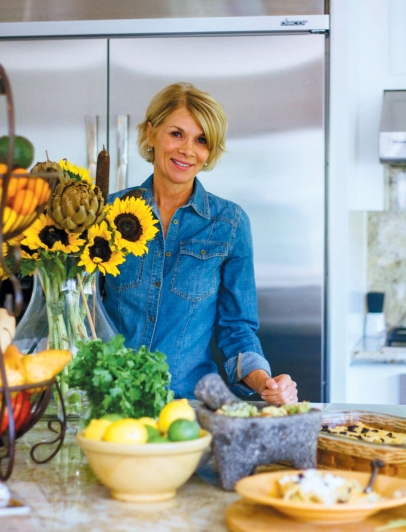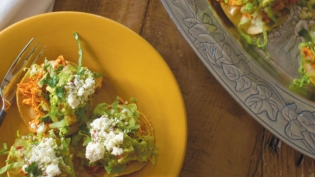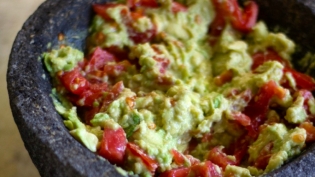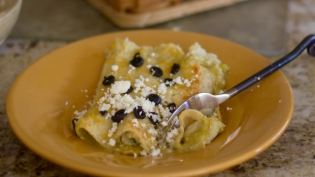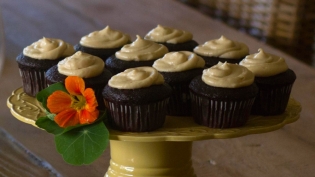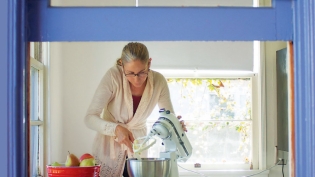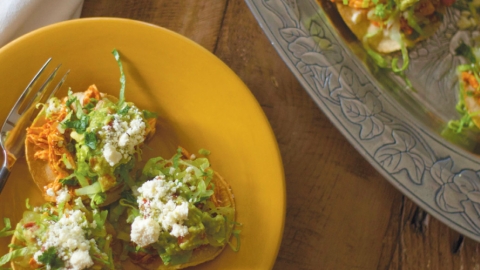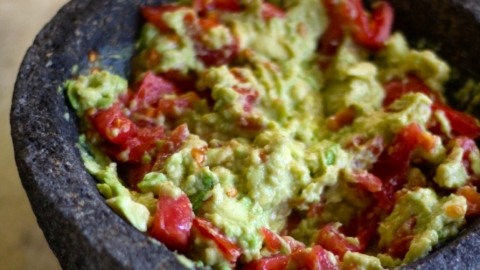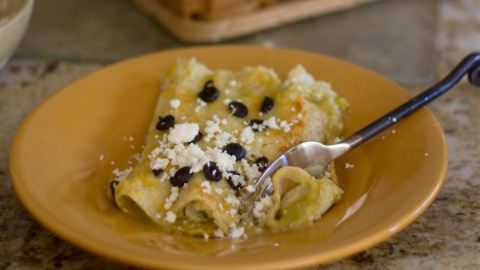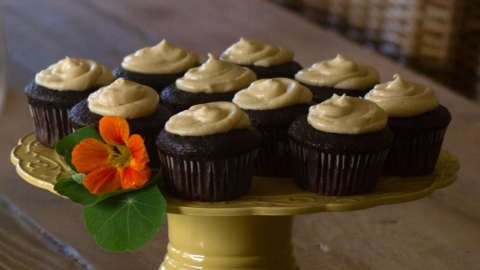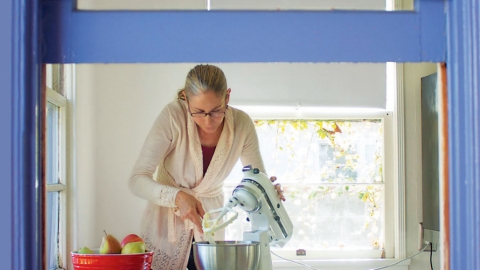Inside Nutritionist Paulette Lambert's Home Kitchen
Located at the top of a steep driveway in Westlake Village, the stucco Spanish-style home Paulette Lambert shares with her significant other, David Smith, is ideal for hosting a crowd.
Beyond the airy kitchen, the dining room's rustic pale oak dining table with rattan chairs sits below a massive iron chandelier. The room opens to an outdoor patio where another dining area–shaded by a giant oak tree–awaits, resulting in an eclectic mix of elegance, comfort and rusticity.
It's here that Paulette, director of nutrition for the California Health and Longevity Institute at the Four Seasons, spends a lot of time entertaining or testing recipes that will be used in the Wellness Kitchen classes.
"My friends and family get to be part of my test kitchen," she says. "I love to make large salads and soups when I entertain. I will often make Mexican food for a party because it's really fun and everyone loves casual dining."
But guests won't find pots of food boiling on the stove when they arrive at Paulette's home. "I always do everything ahead of time. I do these big salads and put them all in Ziploc bags. I'll do things that I just have to put in the oven to heat.
"I'll do Chicken Tinga in advance and put it in the freezer. Poached chicken, fresh tomatoes and onion in the blender with chipotle makes this spicy chicken." The chicken is served on baked mini corn tortillas and topped with lettuce, guacamole and Cotija cheese. Crab enchiladas; a tropical salad with fruit, pineapple, orange sections, romaine; lime-honey dressing with cumin; and chocolate cupcakes with tequila frosting round out this meal fit for a crowd.
"I don't cook any differently at home," Paulette explains. "I pretty much cook out of my [newly published The Wellness Kitchen] cookbook. My friends expect me to cook this way. They know it's delicious and really healthy."
Paulette is also an avid gardener who uses her garden's harvest in her cooking. She has built elevated planters along the tiered steps that are practically at counter height, requiring little bending to tend to the harvest of tomatoes, squash and other goodies. Apples, figs and nectarines also have been planted along the fence that borders the property.
"I get basketfuls of tomatoes during the summer so I sun-dry them, make tomato jam, homemade marinara and tomato soup. I have tomatoes for the whole winter."
Growing up in a farm community in upstate New York, she remembers summer days spent picking blackberries, apples in the fall and getting fresh cider from the apple farm.
"It was great exposure to sustainable farming when it was known as just 'local farming!'"
In the '70s when Paulette was a political science major at Cal State Northridge, weighing whether to trade a career in law for pastry school, her mother suggested she become a nutritionist.
"It was about food and eating, nutrition and health, and I loved that part of it," she says, and switched her major to nutrition in her third year at CSUN.
As a registered dietitian and certified diabetes educator, Paulette keeps a hectic schedule providing one-on-one nutritional consultation to patients; conducting chronic disease prevention programs and workshops and cooking classes for corporate groups and individuals; and training professional chefs in wellness. She also lends her expertise to schools and nonprofits throughout Ventura County, and was previously an expert nutritionist on the ABC television show "Extreme Makeover: Weight Loss Edition."
"The purpose of the Wellness Kitchen is to educate people on the concept of a plant-based diet (seven to 10 servings of fruits and vegetables every day and limited whole grains)–to see it, do it and taste it–how to roast vegetables, how to sear a piece of fish, how to make a light pan sauce that tastes good. We've got to make cooking quick and easy."
"In the last 40 years, women went to work and cooking became optional," she says. This lifestyle change has impacted people's health as they increasingly rely on prepared and processed foods. Onethird of Americans will have diabetes or pre-diabetes (abnormal blood sugars) by 2020, explains Paulette, referring to a United Health Center report for Health and Modernization.
"When I became a nutritionist in the '70s, people said, 'You're not going to have a job!' They thought the interest in organic food was just a fad. Well, that didn't happen–I could work seven days a week around the clock for years."


